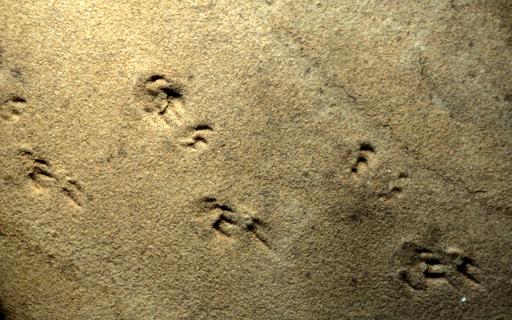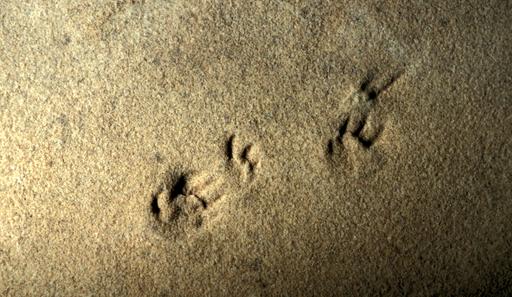Fossilization
Why are some bones and shells preserved as fossils? Can we predict which types of body fossils are more likely to be found over millions of years? Fossilization is a rare event, unfortunately, and as a result our knowledge of ancient organisms is limited. In fauna-rich environments, scavenging animals often eat bones within days, ensuring that they never become fossilized. If a bone is not buried with sediment or covered continuously with water within ~2 years of the animal's death it will not ever become a fossil but will decay and become part of the soil. If buried, the process of mineral replacement can occur quite rapidly, perhaps within less than 10 years. The most favorable environments for this process are hypersaline waters rich in carbonate minerals or ions, although oceanic (normal salinity) waters are conducive to fossilization as well. The terrestrial environment is the least likely to preserve fossils, which is why our knowledge of vertebrates is so incomplete.
A second source of important information is trace fossils. Trace fossils are the evidence left behind by an organisms of some type of activity. Trace fossils that an organisms was once here and did "something," but the actual remains of that organism (the outer shell, bone material, etc.) are not present. The activity could be walking, feeding, or laying eggs, to name a few. Examples of trace fossils include footprints (such as the Laetoli trackway), nests, worm trails, clam burrows, and even coprolites (the fossilized extrement of a creature - yes, fossilized poop.) These trace fossils form under conditions that are different from those which support bone preservation: trace fossils record the lithification (solidification) of sedimentary rocks under conditions of low oxygen, low rainfall and low sedimentation rates. It is more likely, therefore to find trace fossil evidence of terrestrial vertebrates than any other group, just as they are the least likely to be preserved as bones.


Trace fossils. Source: Photographer - Albert Copley Oklahoma University Archives. Used with permission.
Hopefully, you have a better appreciation for the significance of fossils - not just because their occurrences are so rare, but for the information they can provide. Fossils, and the rocks they are contained within, give us a view to Earth's physical and biological history from thousands to millions and even billions of years ago! Africa's geologic and biologic history can only be understood through examination of the rocks and fossils preserved over geologic time.